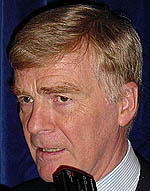- Home
-
News
-
Latest News
- Marko and Minztlaff behind sacking, claims Horner
- Be open-minded, Sainz urges the powers that be
- Mercedes reveals 2026 Junior Programme
- A further tweak to the start procedure?
- Energy management threat will be circuit dependent, warns Piastri
- Domenicali talks Turkey
- "We may need to make adjustments," admits Tombazis
- Drivers wary of increasing the number of Sprints
- Piastri and McLaren top Bahrain mileage
- More News
-
-
Drivers
-
Current Drivers
- Lando Norris
- Max Verstappen
- Gabriel Bortoleto
- Isack Hadjar
- Pierre Gasly
- Sergio Perez
- Andrea Kimi Antonelli
- Fernando Alonso
- Charles Leclerc
- Lance Stroll
- Alexander Albon
- Nico Hulkenberg
- Liam Lawson
- Esteban Ocon
- Arvid Lindblad
- Franco Colapinto
- Lewis Hamilton
- Carlos Sainz
- George Russell
- Valtteri Bottas
- Oscar Piastri
- Oliver Bearman
- Test/Reserve Drivers
-
-
Teams
-
Current Teams
- McLaren Formula 1 Team
- Mercedes-AMG Petronas Formula One Team
- Oracle Red Bull Racing
- Scuderia Ferrari HP
- Atlassian Williams F1 Team
- Visa Cash App Racing Bulls Formula One Team
- Aston Martin Aramco Formula F1 Team
- TGR Haas F1 Team
- Audi Revolut F1 Team
- BWT Alpine F1 Team
- Cadillac Formula 1 Team
-
-
Tracks
-
Current Circuits
- Melbourne (Australia)
- Shanghai (China)
- Suzuka (Japan)
- Sakhir (Bahrain)
- Jeddah (Saudi Arabia)
- Miami (USA)
- Montreal (Canada)
- Monaco (Monaco)
- Barcelona (Spain)
- Red Bull Ring (Austria)
- Silverstone (UK)
- Spa-Francorchamps (Belgium)
- Budapest (Hungary)
- Zandvoort (Netherlands)
- Monza (Italy)
- Madring (Spain)
- Baku (Azerbaijan)
- Singapore (Singapore)
- Austin (USA)
- Mexico City (Mexico)
- Interlagos (Brazil)
- Las Vegas (USA)
- Losail (Qatar)
- Abu Dhabi (UAE)
-
- Seasons
-
Pictures
-
Latest Galleries
- 2026 Bahrain Test 20 February
- 2026 Bahrain Test 19 February
- 2026 Bahrain Test 18 February
- 2026 Bahrain Test 13 February
- 2026 Bahrain Test 12 February
- 2026 Bahrain Test 11 February
- 2026 Launch - Aston Martin
- 2026 Launch - McLaren MCL40
- 2026 Launch - Cadillac
- 2026 Launch - Williams FW48
-
Gallery Categories
- 2026 Season
- F1 Testing
- 2025 Season
- All galleries
-
- Stats
- JOHNNYBET

 FIA President Max Mosley set out his vision for Formula One and its sustainable financial future in his keynote address to the Motor Sport Business Forum in Monaco today.
FIA President Max Mosley set out his vision for Formula One and its sustainable financial future in his keynote address to the Motor Sport Business Forum in Monaco today. 



















sign in